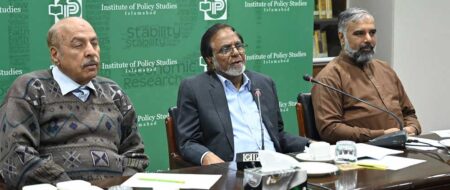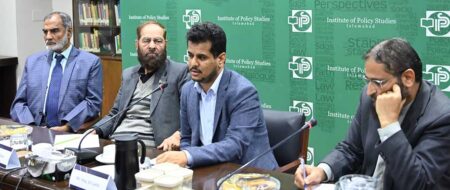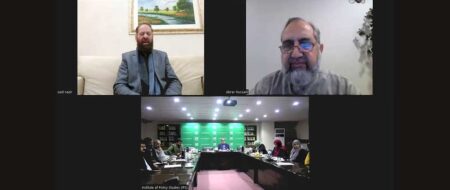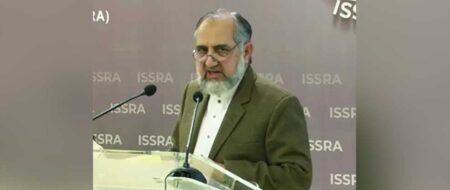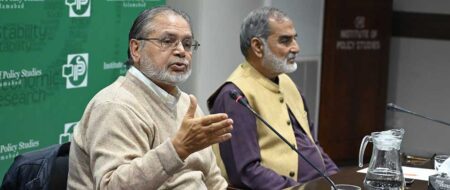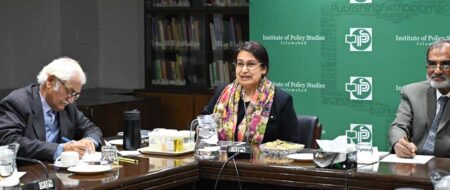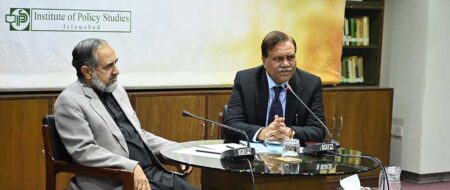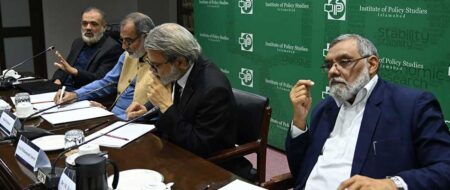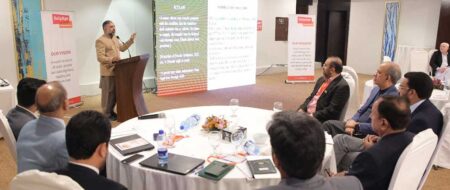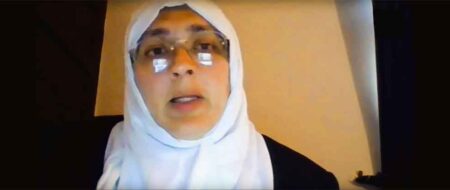WTO, FTAs and RTAs: Implications for Pakistan Economy
To initiate a debate on Pakistan’s economic growth vis-à-vis globalization, IPS organized a roundtable entitled, “WTO, FTAs and RTAs: Implications for Pakistan Economy with Special Reference to Auto Sector” on November 2.
Mr. Masud Daher, ex-chairman of National Tariff Commission and CEO of MilleZum Consult Pvt. Ltd., was the main speaker. The roundtable was chaired by Mr. Fasih Uddin, former Chief Economist and Chainman of the IPS Working Group on WTO.
A select gathering of international trade and industry experts, government officials, intellectuals and businessmen was present at the occasion.
The speaker noted that the deadlock in WTO negotiations was the major reason behind spurring regionalism and bilateralism; many free trade agreements (FTAs) and Regional Trade Agreements (RTAs) were being negotiated and implemented by countries, including Pakistan, with regional and global partners.
The participants pointed that the country’s domestic industry in particular and various other sectors in general were suffering from the absence of good governance, short-sighted policies, implementation issues and grave unresponsiveness to competitive world market.
“Pakistan lacks the best practices required to benefit from free trade agreements,” added Mr. Daher.
He also opposed the import of used cars to the country and termed it as “disaster to the local auto industry”. This was supported by Mr. Mohammad Sulaiman, a consultant with Engineering Development Board (EDB). “It amounts to making Pakistan a junkyard of old cars”, said Mr. Sulaiman.
On the IPS role about these issues, Mr. Khalid Rahman said that the institute would continue to interact with stakeholders from various walks of life, including the government for intensive debate on such issues of national importance.
Concluding the session, Mr. Fasih Uddin said that FTAs and RTAs were tools of convenience and complications. “Multilateralism remains the best choice”, he argued.


